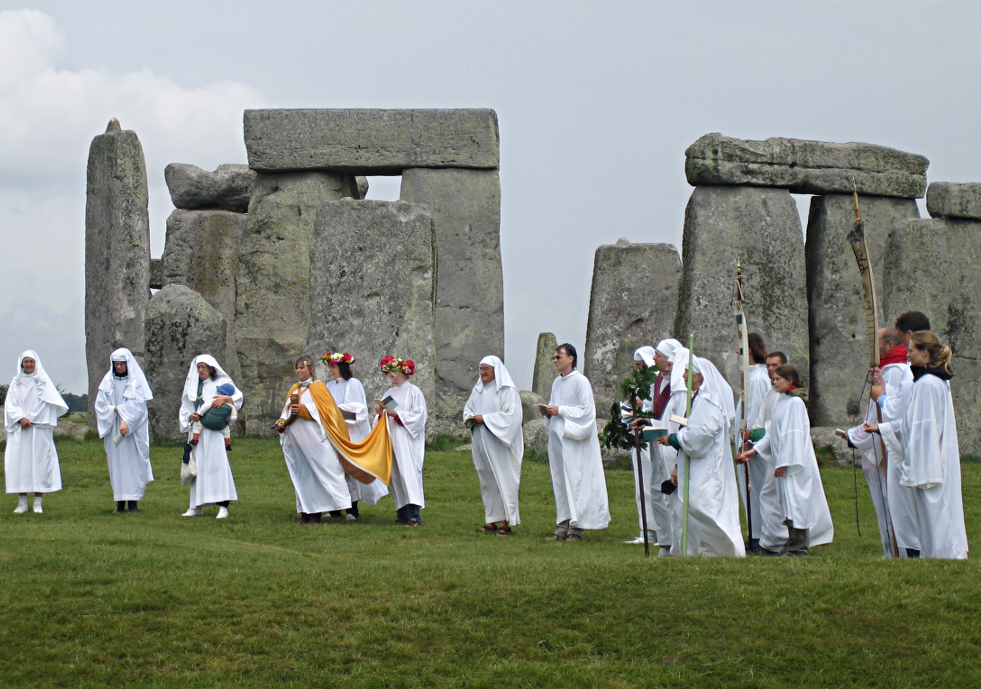For more than thirty years G. K. Chesterton wrote a weekly essay for the Illustrated London News. In a 1932 piece, now known as “The Loss of True Paganism,” Chesterton took note of a phenomenon that is still very much with us today. The phenomenon in question was the decline of religious belief and religious practice among the young. Chesterton began his commentary by noting how common it was for members of his generation to disparage the paganism of the youth of his day. In fact, he had heard that lament so often that he had been tempted to think that the lamenters were right. But in the essay, he made it quite clear that he had been able to resist that temptation in order that that he might offer a very different lament.
As Chesterton saw it, the problem with the young people of England was not that they were pagans, but that they had lost any and all vestige of paganism. It was not that they had lost their Christianity, but that the vast majority had never had any Christian commitment to lose in the first place. Chesterton was quick to add that this loss was not necessarily the fault of the young, but it was surely their misfortune.
This is not to say that the English youth of the interwar period were spiritless. Chesterton found them both spirited and rebellious. But they were not the offspring of “Puritan bankers” or “venerable Protestant parsons.” Instead, they were the children of parents who had weaned themselves on the writings of George Bernard Shaw and H. G. Wells and other skeptics and agnostics. Therefore, it was not at all surprising to Chesterton that the rising generation of young people did not know much of anything about the “historical Christianity.”
What Chesterton was driving at here was not necessarily the loss of belief in this or that god, but the loss of what he termed the “projected halo of the supernatural” that had once hovered over all natural things. That would be the very halo that true pagans experienced. Insofar as a true pagan was concerned, “wine was always more than wine; it was a god.” And to a real pagan “corn was always more than corn; it was a goddess.”
In other words, true pagans were not materialists. That’s because they had never lost the sense that there is something about our material world that is “more real than realism.” It was the absence of that sense that very much worried Chesterton.
If only the young were pagans, Chesterton opined. As he saw it, the problem that England faced nearly a century ago was not that the young constituted the “first generation of rebels to be pagans.” No, the real problem was that they were the first generation not to be pagans.
Whether “rebels or fools,” English youth had grown all too content to live their lives under the “strange delusion” that eggs were simply eggs—or that wine was nothing more than wine.
Was there anything that could be done to alter this delusion? Chesterton puckishly suggested that missionaries might be dispatched to convert the young to paganism. Then he ominously suggested that the problem deeper than that.
And yet G. K. Chesterton was not without hope. In this case, Chesterton paradoxically placed his hope in the young, especially the “innocent and intelligent” young. Perhaps they might manage to get in touch with Christian orthodoxy. After all, stranger things had happened.
Chesterton made no claim to being intelligent (innocent, yes, but not intelligent), but when he was a young man in his twenties this was precisely what had happened to him. This son of Unitarian universalists, who subsequently endured a dark period of unbelief, emerged from it all by getting in touch with Christian orthodoxy without initially realizing that that was what it was.
On his way to Christian orthodoxy Chesterton must have been a pagan of some sort. And why not? Weren’t the first Christians themselves pagans? So maybe sending missionaries to convert the young to paganism wasn’t such a bad idea. As C.S. Lewis later said, “Moral relativity is the enemy we have to overcome before we tackle Atheism. I would almost dare to say ‘First let us make the younger generation good pagans and afterwards let us make them Christians.’” Could both Chesterton and Lewis be right in thinking that this generation must first pass through the stage of paganism before they recognize the value of orthodoxy?
——————————————-
[Picture Credit: Flickr-Sandyraidy cc by-sa 2.0]
















Leave a Comment
Your email address will not be published. Required fields are marked with *